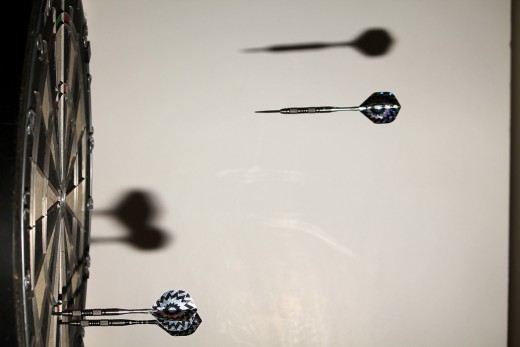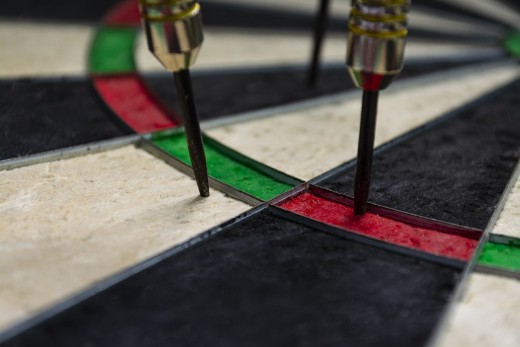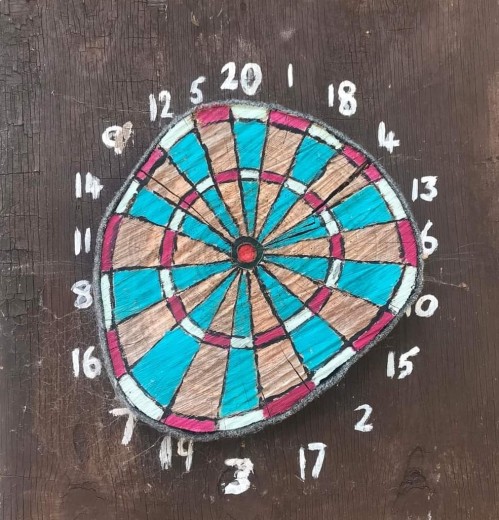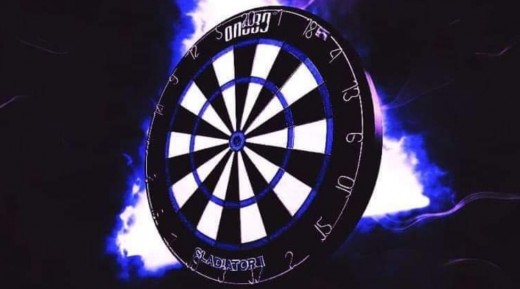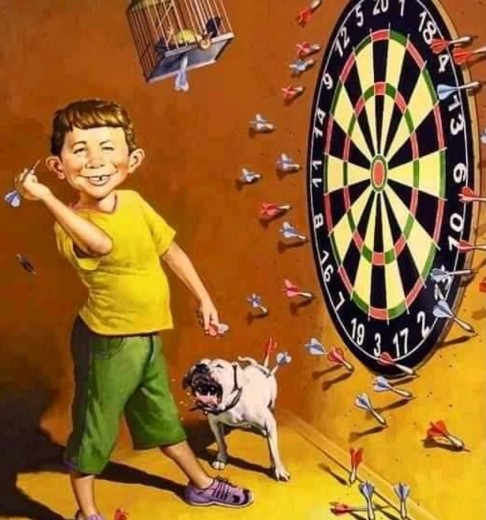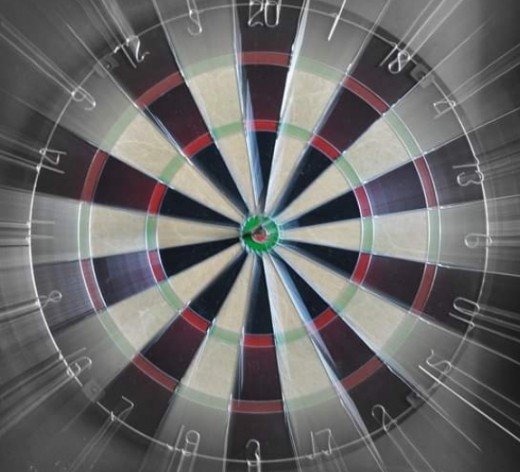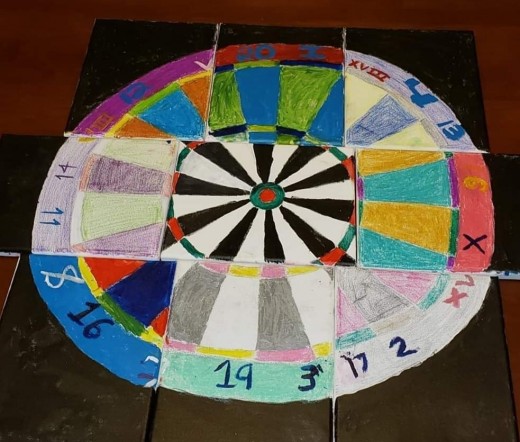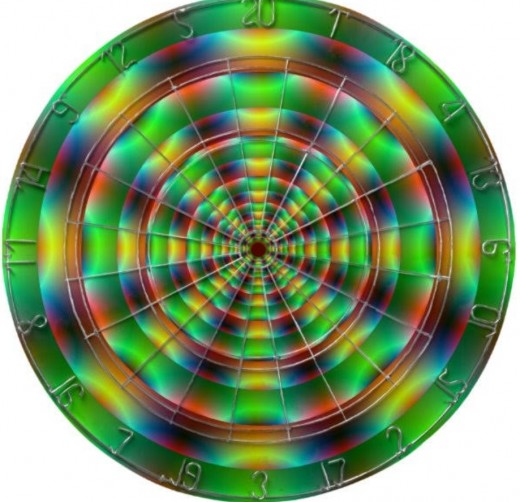Monday, December 26, 2016
Column CM15
Christmas Pudding… and Darts
I doubt most readers will see any connection between Christmas Pudding and darts. But one really can find one – when you are desperate to do so. I’ll prove it!!!
At this time of the year, Christmas Pudding is offered everywhere in the UK, something you will not find most everywhere else around the world except, perhaps, in some of the former British colonies. This speciality is a staple to every British Christmas dinner and has been around since Medieval times. Sometimes you hear it called Plum Pudding, although there are no plums in it at all. This not-easy-to-digest dessert (at least for the novice) is a mixture of dried fruit, eggs, and suet – flavoured with several seasonal spices. Also added is alcohol, which helps the pudding keep – for up to a year’s time. Dark treacle or molasses are used to sweeten it, and are responsible for the dark colour. The ingredients – especially the spices – were luxury goods in the early years of the pudding – so those able to enjoy it were generally part of the upper-class. The pudding is either cooked or damped for hours and is served decorated with a holly branch. You can flame it, eat it with butter or ice cream, or just powder it with sugar.
Some Medieval myths surround the pudding. For example, it is said that you have to use 13 ingredients which represent Christ and the Twelve Apostles or that all family members have to stir the pudding from East to West.
Christmas Pudding spawned several “ancestor dishes” which were are eaten at Christmas. The close connection to Christmas only developed in the 19th Century and during the Colonial Era when it evolved into a sort of “entity” of the British Empire, especially when the “official recipe” required ingredients from several of the Colonies – such as currants from Australia, raisins from South Africa, apples from Canada, and…
…are you starting to see the connection?
It was not only Christmas Pudding which the British exported to their former Colonies or from which they imported the ingredients for…
It was exactly the same with the sport of darts.
And so on the sixth evening of the World Championship, Simon Whitlock, a player from a former colony stood on stage. Already we had witnesses participants from South Africa and Canada.
In the Preliminary Match of the evening debutant Dragumir Horvat, the first German-speaking player, took to the stage. Horvat qualified by winning the Bulls Super League Germany and his opponent was Russian Boris Koltsov, the winner of the Russian qualifier who already had some experience on this stage. All in all it was one of the weaker Preliminary Round matches and the averages never were above 77. Horvat was at the start the more nervous player and he lost the first set. Then, he slowly settled and won 3-2 in the end with a doubles hitting rate of just 22 percent. Should he have any hope for a chance against Whitlock he would have to improve a lot.
Next Brendan Dolan and Kevin Kist walked on stage. Dolan appeared in a blue and white Christmas shirt but stayed with sparkling green flights. Not only the shirt but the match was a surprise as well as Dolan, who had somehow wiggled through the Grand Slam, played a really good match. As he explained afterwards, he realised the sport of darts was his life and the support he receives from his wife, step children, and all of his family motivates and means the world to him. Dolan won 3-1 and, like the other two first round matches, it was a relatively easy and clear win.
In the UK, Raymond van Barneveld is very popular and he was next on the agenda – and his opponent was Robbie Green. The match was not as boring as the 3-0 result might suggest as Green played quite a solid match, although he didn’t get many chances and was not able to use those that came his way. The match was over fast and I noticed that van Barneveld was the only winner so far who didn’t throw any flights into the crowd – not a single one. Instead, he showed his winner’s pose. I am sure the crowd would have preferred the flights.
The last match of the evening was over just as fast – the match between Simon Whitlock and Dragumir Horvat. Horvat scored better but his doubles hit rate didn’t improve, actually got worse, as in the end he reached just 14 percent. On top of that, Horvat had a problem with Whitlock’s rhythm – it was too slow for him. And so Horvat constantly switched between throwing fast and throwing slow and to be sure this didn’t help his match. But much better players then Horvat wouldn’t have had a chance against Whitlock on the day as he played an almost 99 average and hit 60 percent of his doubles.
The evening session was over fast and we all could return earlier to our rooms. But I hadn’t been able to do much writing so for me in it was another very long night.

